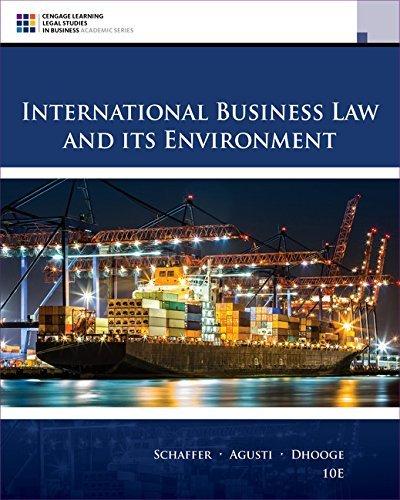Question:
In 1993, a Mexican firm, Coterin, received a permit from the Mexican government to build a hazardous waste treatment plant in the La Pedrera valley in the state of San Luis Potosi, near the city of Guadalcazar. Metalclad, a U.S. company, was interested in acquiring Coterin. Several Mexican government authorities assured Metalclad that Coterin had obtained all required construction permits for the facility. One month later, Metalclad purchased Coterin. In 1994, amid much opposition to the plant from local residents and environmental protestors, the city of Guadalcazar ordered a halt to construction, claiming that no municipal permit had been obtained. Metalclad responded that the Mexican federal government had told it that no further state or municipal permits were needed. Metalclad even promised to create a reserve for native species and a local scientific advisory council, give discounts for local waste, contribute to local charities, and provide some free medical services to local residents. But, without reason, the city informed Metalclad that it could not begin operations. In 1997, the state governor issued a decree designating the landfill as a protected ecological and wildlife area, putting an end to Metalclad's business there. Having expended $16.5 million on the project, Metalclad requested that a NAFTA arbitral tribunal be convened to resolve the dispute. The company maintained that it had not been given fair and equitable treatment, the Mexican regulations lacked transparency, and that Mexico had in fact expropriated their property without payment of fair compensation.
What was the panel's decision with respect to the restrictions placed on Metalclad's operations by Guadalcazar?







